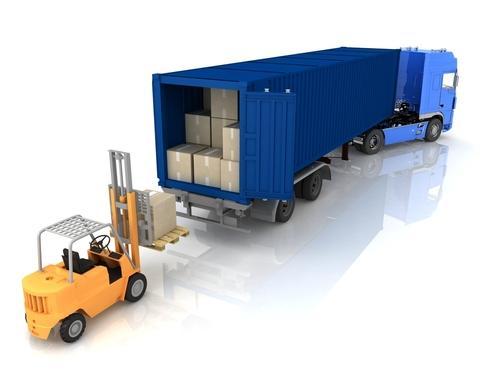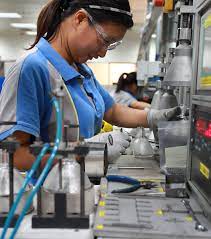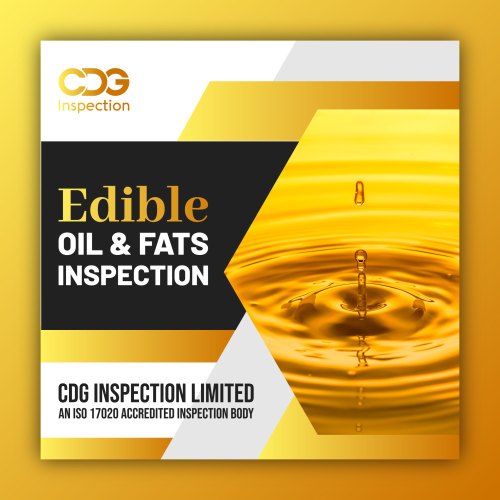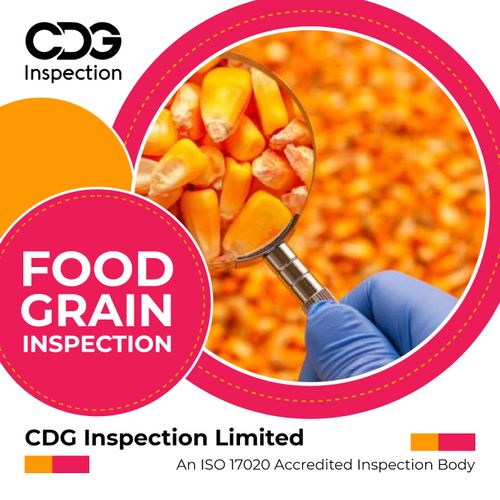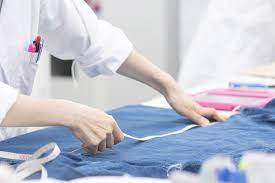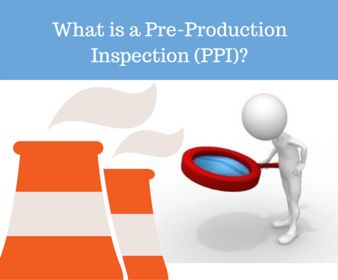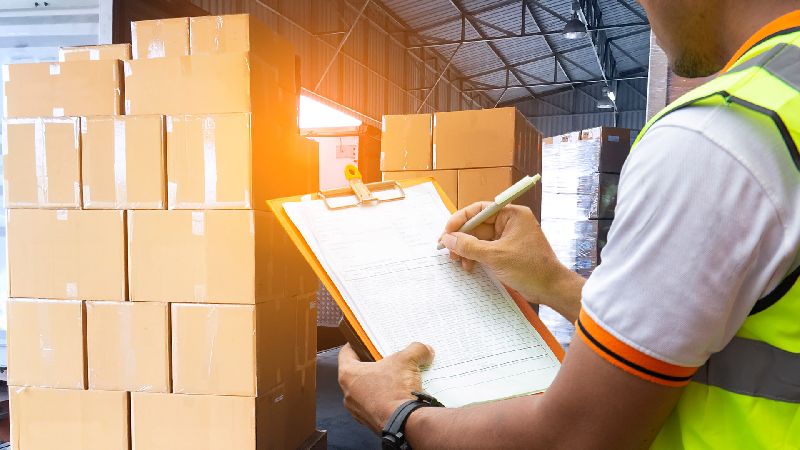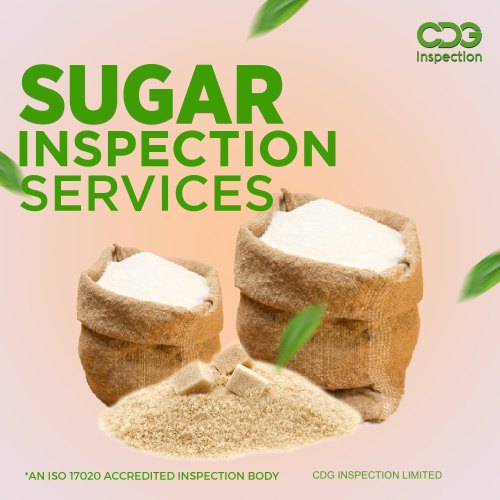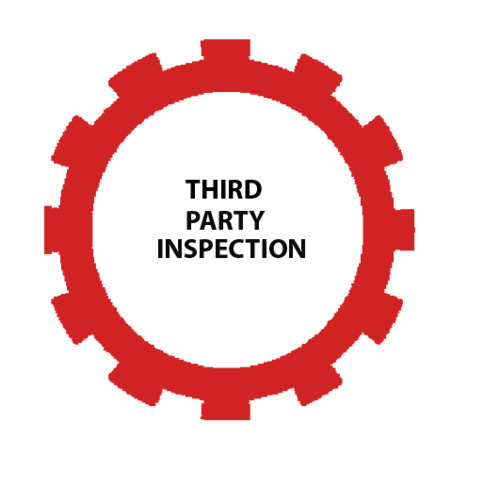Connaught Place, delhi
Inspection
Leading of Container Loading Supervision, During Production Inspection, Edible Oil & Fats Inspection, Food Grain Inspection, Garment Inspection, Pre-Production Inspection, Pre-Shipment Inspection, Sugar Inspection and Third Party Inspection from delhi.
Container Loading Inspections for Product Protection
A quality container loading inspection is your protection against damage caused by improper loading or shipping procedures.
5 Steps for a Successful Container Loading Inspection
Imagine a container loading inspection as an extension of factory line quality control.
1. Quality and Quantity Checks
Individual products should continue to be checked for construction integrity. An inspector can sample a small portion for final verification before loading begins. This is an extra measure intended to catch issues missed between the factory line and the loading zone.
However, since a product loading inspector can only look at a small percentage of the total shipment, it should never be a complete replacement for a more thorough pre-shipment inspection.
During this step, model numbers and order totals are also checked for accuracy against inventory documents.
2. Packaging Inspection
Packaging strength is essential to the integrity of the product. When an on-site inspector can spot defective, out-of-spec, or mislabeled packaging before the product leaves for its long and cramped journey, a company can save potentially millions in damaged goods, return costs, and loss of sales.
Even when product packaging meets its required specs as per quality assurance (QA) standards, an experienced inspector may be able to provide observations and recommendations that can help further strengthen future packaging design. These recommendations are built based on close observation of how products stand up to routine loading procedures and in-transit conditions.
3. Loading Procedure Verification
How aware are busy loading operators about 'fragile' products? Are they treated with care, or handled as just another package to be shipped as quickly as possible?
An on-site inspector will ensure all personnel involved in the loading process are aware of sensitive items and can perform sensitive loading duties accordingly.
Are cargo containers being sealed properly? The most carefully loaded cargo can be easily ruined by weather leaks.
Therefore, the quality of the sealing must be verified by an on-site inspector before it leaves.
4. Cargo Container Quality Inspections
Perhaps it is the containers that are not fit for the journey. Export cartons must be thoroughly inspected for any damage, leaks, molds, bugs, rodents, and overall material conditions. Are the container walls already softened or crushed by previous use?
Whereas a typical loading and shipping company may either miss container flaws or gamble that a damaged crate can still withstand the journey, a trained loading inspector will leave no wall, latch, or seal unchecked.
5. Verification of All Legal and Regulatory Documents
The cargo container is sound and resistant to leaks. That doesn't mean a necessary piece of paperwork can't fall through the cracks.
How can CDG Help?
CDG Container Loading Checks (CLC) extends QC inspections to all loading and shipping concerns. For all inspections, CDG uses the standard internationally recognized ANSI/ASQC Z1.4 (ISO 2859-1) statistical sampling procedure, covering: functionality, performance, durability, overall appearance, and dimension.
CDG provides During Production Inspection in India.
During Production Inspection
During Production Inspection (DPI) or otherwise known as DUPRO, is a quality control inspection conducted while production is underway, and is especially good for products that are in continuous production, that have strict requirements for on-time shipments and as a follow-up when quality issues are found prior to manufacturing during a pre-production inspection.
These quality control inspections are conducted during production when only 10-15% of units are completed. During this inspection, we will identify deviations and give feedback on corrective measures. In addition, we will re-check defects during the pre-shipment inspection to confirm they have been corrected.
At each stage of the production process, our inspectors will produce a full and detailed inspection report, together with supporting pictures to provide you with a comprehensive overview, giving you all the information and data, you need.
The Benefits of a During Production Inspection
It enables you to confirm that quality, as well as compliance to specifications, is being maintained throughout the production process. It also provides early detection of any issues requiring correction, thereby reducing delays.
During Production Inspection | DPI/DUPRO checklist:
Production status
Production line evaluation and timeline verification
Random sampling of semi-finished and finished product
Package and packaging material
Overall assessment and recommendations
What you can expect:
Highly trained technical inspector monitoring the quality of your goods
Inspector can be onsite within three working days of your order
A detailed report with supporting pictures within 24 hours of inspection
A brand champion working onsite to improve your supplier’s quality.
The CDG benefits
Independent quality control performed by product experts to protect your business interests.
Global coverage across 85 countries in Asia, Africa, Europe, North and South America.
Speed and flexibility with an inspector onsite within 48 hours; modify or cancel up to the day before inspection.
Same-day inspection reports tailored for your product.
Online program management book inspections, make payments and download detailed reports.
Custom quality dashboard to identify trends and make informed decisions in real-time.
Why Should You Conduct a DUPRO Inspection?
DUPRO Inspections can serve as an important part of a well-rounded quality assurance program. These inspections are most useful for customers who:
Are producing large quantities in continuous production
Are using a vendor for the first time
Cannot afford delays
Need detailed reports on production, including statuses, processes, schedules, capacity, and materials
Need to ensure a vendor is still following their requirements
One of the key benefits of DUPRO Inspections is that they enable you to take corrective action early. You’ll be able to deal with issues while your goods are still in production.
CDG tests and assesses creature fats and oils. We set up a one-stop answer to be available to you which gives solid quality and amount confirmation as well as security and recognizability of any fluid freight all through the production network and according to most recent guidelines. Lab scale recreation of paraffin statement in pipelines turns out to be increasingly more significant for inhibitor advancement and productivity testing: Our Wax Flow Loop will be ideal decision. An oil's yield point is not entirely settled by estimating the yield pressure in a rotational viscometer and extrapolating to shear rate 0. In any case, this strategy is extremely mistaken contrasted with estimating the yield point at zero stream rate, full tension, and inside a pipeline. Our Pipeline Restart Loop is intended for precisely this errand. Our Multi-Place Cold Finger instrument is for quick, equal paraffin inhibitor testing. 6 or 12 tests can be run at the same time to think about different synthetics or shifting inhibitor focuses Pre-shipment Inspection Recognizable proof of freight for shipment. Inspecting of tank ranches/storage spaces. Stacking and release management Check of cleanness of vessels and shore tanks, management of tank checking Inspecting, Visual revealing. Gauging and inspecting Check of weight estimations, Organization of reference tests, fixing, and maintenance. Research facility testing. A total proposal of physical and substance investigations According to most recent public and worldwide norms and technique. The reason is it essential to test for fats and oil is leading tests and other investigation, with respect to fats and oils guarantees the wellbeing and nature of this large number of items. Testing additionally forestalls likely decay because of rancidity as it can assist with deciding the timeframe of realistic usability of the items.
Majorly Consumed Cooking Oils Include -
Seed oils, nut oils and pulps
Rapeseed, sunflower, safflower, linseed, pumpkin seeds, sesame
Grain sprouts
Nuts (walnut, hazelnut, peanut)
Palm, coconut, soy, avocado
Olive oil (according to act (EWG) No 2568/9)
Oil from melon or guard seeds (pumpkin seed oil, watermelon seed oil)
Animal oils and fats (fish oil, beef tallow etc.)
Lecithin
Margarine, spreadable fats
CDG Provides Accredited Edible Oil & Fats Inspection Services in India. Fats and oils are coordinated wellspring of energy. A certain level of body weight of a person is fat and 20-35% of calories ought to come from fat. Fats in the eating regimen are fundamental for good wellbeing and are required for the development of the body and the handling of nutrients. They make up pieces of all cells and assist with keeping up with the internal heat level. They structure greasy tissue around sensitive organs to safeguard them from injury. Artificially fats and oils are trimesters of glycerol and higher unsaturated fats. They are of creature or plant beginning. Desi ghee is creature ghee while vanaspati ghee is vegetable ghee. Fats are solids while oils are fluids at standard temperature. Fats and oils might be soaked or unsaturated. Saturated or soaked fats hold just single bonds inside the carbon chain. Soaked fats are of creature beginning and are generally present in the strong structure. It expands the blood cholesterol level. A few models are meat fat, spread, and so forth. Coconut oil and palm oil likewise contain soaked fat. Unsaturated fats hold twofold securities inside the carbon chain.
Grain quality is important for farmers, food producers and, ultimately, consumers. What Should You Test in Grain? Key things to test for in grain include: Moisture, Protein, Specific weight, Mycotoxins, Oil content, Falling number. These various elements in grain will have an impact on its quality, its marketability and its overall value as a product. Moisture content is a major concern. It affects the sale weight of grain and determines whether it can be stored in the long term. Protein is important because food manufacturers and processors will be looking for a specific quality of grain for their products. If a farmer's grain yield fails to match these requirements, they can find their crop rejected or fetching lower prices. The specific weight is a standard, widely understood and accepted measure of grain quality. It is an indicator of the density of grain, and as with protein, producers and millers will have specific weight requirements for the grains they buy. Testing for nitrogen in some grains may be necessary as levels that are too high can lead to a lower specific weight. Testing for mycotoxins is vital, as these naturally occurring toxins can impact crop production, contaminating crops during harvesting, drying and storage. Plus, they pose a risk further up the food chain, if animals eat contaminated feed. Oil content is an essential parameter for various seed crops, including oilseed, including testing the purity of oil. The falling number (FN) test measures alpha-amylase (AA) enzyme activity and levels. Levels of AA activity can determine whether specific grains are suitable for different baked products. This is the original method for testing the suitability of wheat for bread-making. How Should You Inspect Grain for Quality Analysis? There are various inspection methods and tools for monitoring grain quality. Modern grain inspection systems use innovative magnification technology.
CDG inspection systems provide magnification up to 320 times, with multi-viewer options and high-definition live imaging. This enables close-up viewing and assessment of crops for seed or grain quality. Inspection systems can help detect contaminants and identify sprouted or damaged grains. Grain quality testing and analysis come in various forms, using different methods and technologies. These methods are ideal for testing at different parts of the production process: Growing, Harvesting, Storage, Distribution, Food production. Grain Inspections, testing and Audits, CDG is a world-leading third-party inspection company. With a wealth of experience, we ensure fast, quality and reliable testing of grain, wheat, soybean, corn and rice and much more. We use state of the art testing methods and in-house industry experts to provide an extensive range of premium services. Grain Inspection Services, our grain inspections are bespoke based on the different production status of the goods, preventing any risks and delays. This gives ample time for results of quality testing so that your goods can meet with purchase orders. Grain Supplier Audits, our onsite factory audits will assist in developing a deeper understanding of your needs. Giving valuable insight to which suppliers fit best to achieve your business objectives. We also evaluate suppliers based on the criteria which are required.
Garments Inspection
The inspection that is done for controlling the quality of garments is mainly meant to examine in bare eyes. Checking of the fabrics of garments, sewing, button, thread, zipper, measurements of garments etc. with the standard process is called the inspection. In each section of a garments industry, there are arrangements for inspection. The main purpose of inspection is to identify the faults at the earliest possible steps for production of garments and earlier the defects will be detected lesser will be the wastage of time and money.
For conducting successful and meaningful inspection, steps can be adopted as per the ‘inspection loop’ described below. First, identify defects through inspection, inform about the defects to the concerned person, identify the causes of defects, and rectify them.
Garments Inspection Steps
In garments Industry, inspection is generally conducted in three steps:
- Raw material
- In Process and
- Final
1.Raw Material Inspection
In garments industry, raw material means mainly the fabrics, but sewing thread, zipper or chain, interlining etc. also may be considered under the items of raw material.
- Fabric Inspection-Local or foreign that means whatever be the country of origin of fabrics, the quality of fabrics should be well judged before purchasing of fabrics, because, if not so, both time and money may be wasted. Specially, due to the low-grade fabrics, burden of irreparable loss may have to be borne. Some factories do inspection after reaching the fabrics at their factories. But it is wise to do the fabric inspection at sellers' factory.
- Sewing thread Inspection
2.In-Process Inspection
The process of inspection of the various parts of a garment before joining is called in-process inspection. In garments industry, inspection is done in each section starting from spreading to finishing. The main objective of in-process inspection is to identify the defects in the primary stages of various sections and to adopt the necessary steps to rectify the defects. Because, the defects detected as earlier, its rectification cost will be lesser. In order to control the quality of garments.
- Marker making-If mistakes or defects occurred in marker making, the quality of garments will be lower. So, all the matters involved in marker making, should be inspected properly.
- Fabric Spreading-The defects during spreading of the fabrics, for which the quality of garments may be lower, should be taken care at the time of spreading of fabrics.
- Fabric Cutting-The most important precondition for making of high-quality garments is the cutting of fabrics in high quality. So, the factors related to fabric cutting, should be inspected carefully.
- Fabric Sewing-In garments manufacturing industries, the most specious and the most important section is the fabric sewing section. The jobs of each sewing machine operator of this section should be regularly inspected
- Pressing or Finishing-The main objective of pressing or finishing is to make arrangement so that garments look good, because, in most of the cases a customer takes the buying decision of the garment based on whether it looks good or not though buying of a garment also depends on its price, quality, standard etc. For this reason, pressing or finishing is very much important.
3.Final Inspection
In the final inspection, mainly the whole inspection of garments is done, because, before this stage, there is no opportunity to do inspection of a complete garment. This final inspection is very much important from the buyer's end. In this final inspection, mainly the size of the garments, form fitting, and the defects of the garments are inspected.
WHAT IS A PRE-PRODUCTION INSPECTION?
Pre-production inspections take place after you identify and evaluate a vendor or factory. Their main purpose is to highlight quality risks before the start of manufacturing. Your pre-production inspection may take place right before production starts or prior to the start of final assembly. A PPI allows you to gain:
A clear understanding of production schedules
The ability to anticipate potential problems that might impact project timing or product quality
Assurance that your requirements will be met
Assurance about raw material quality and product components
WHY ARE PRE-PRODUCTION INSPECTIONS IMPORTANT?
Pre-production inspections are one of the cornerstones of risk assessment and quality assurance management. Without a pre-production inspection, you would not have a structured way to verify that your supplier can begin production, meet your specifications, or adhere to your quality requirements.
These inspections provide many benefits for your business. When you choose to hire an individual or entity to conduct pre-production inspections for you, you:
Reduce the risk of your supply chain being disrupted
Have a chance to verify your supplier's production readiness
Can measure your manufacturer's ability to meet your needs and quality objectives.
A CHECKLIST FOR PRE-PRODUCTION INSPECTIONS
Your inspector should visit your supplier's production site and provide a checklist of what should be covered. The inspector needs to physically inspect the raw materials, the components, and the factory that will contribute to your project
During the inspection, your inspector will.
Verify the availability and condition of materials
Review the manufacturer's preparation and planning for production
Check up on in-house quality control
Help prepare for future product inspections (he or she will review your approval samples and list the tools that are available to perform product testing)
The ideal pre-production inspection includes these checks
Material status
Material condition
Production readiness
Factory facilities and machinery
Measuring and testing equipment
WHY DO YOU NEED A PRE-PRODUCTION INSPECTION?
Reduce risks of supply chain disruption
Verify your supplier is well prepared for production
Measure the manufacturer’s ability to meet your quality objectives
Get a clear view of the production schedule.
CDG inspectors visit your supplier’s production site to conduct a physical inspection of the raw materials, components, and factory in China or elsewhere in Asia. During the pre-production inspection, we identify the availability and condition of the materials, review your manufacturer’s preparation for production, and check in-house quality control processes.
In addition, the pre-production inspection checklist includes preparation for future product inspection(s) by reviewing your approval samples and listing all tools available to perform product testing.
We can arrange a Pre-Production Inspection within 48 hours and release your inspection report and certificate of inspection in less than 24 hours.
Pre-Shipment Inspection
Ensure that equipment ordered conforms to specifications - with our pre-shipment inspection (PSI) services
In today’s industry, success means the ability to offer the right products at the right time for a competitive price. To meet market demand, industrial manufacturers select their materials and suppliers from all over the world. With increasing globalization, the risk of products and materials not being delivered on time and/or lacking in the quality agreed upon also grows. Clients in different parts of the world have the common need for a guarantee that ordered components, materials and equipment align with given specifications.
An independent third party like CDG can help you with pre-shipment inspection in order to ensure that equipment, components and documentation conform to contractual requirements.
Ensure that equipment ordered conforms to specifications - with our pre-shipment inspection (PSI) services
In today’s industry, success means the ability to offer the right products at the right time for a competitive price. To meet market demand, industrial manufacturers select their materials and suppliers from all over the world. With increasing globalization, the risk of products and materials not being delivered on time and/or lacking in the quality agreed upon also grows. Clients in different parts of the world have the common need for a guarantee that ordered components, materials and equipment align with given specifications.
An independent third party like CDG can help you with pre-shipment inspection in order to ensure that equipment, components and documentation conform to contractual requirements.
Our extensive experience gained in global supply chain projects makes us your preferred partner. You can benefit from our know-how and tailored solutions for your business.
Learn more about how pre-shipment inspection can benefit your project. At many locations worldwide.
Assure quality prior to shipment with the help of our industrial equipment specialists
Pre-shipment inspection checklist
From quality to documents and loading, we check your orders prior to shipment
With the contribution of our CDG experts, you can be sure that the equipment ordered corresponds with quantity and quality requirements, is packed to withstand adversities of transport and that shipping documentation is complete.
Our contribution to your success in your international supply chain
Our scope for pre-shipment inspection services includes, but is not limited to:
Packing check to make sure sufficient protection during transportation is provided and confirm it is in accordance with specified requirements
Loading inspection to ensure proper fixing of goods for transportation
Verification for correct installation of movement recorder devices
Verification of completeness of shipment documentation
Verification that all equipment is in agreed contractual conditions prior to shipment
Provision of pre-shipment inspection report
Why choose pre-shipment inspection from CDG?
As a world-leader in pre-shipment inspection, we offer you a unique global presence, along with the necessary accreditations. This enables us to perform a detailed inspection prior to shipment, in the country of exportation, in every corner of the world. This helps you to:
Assure the quality, quantity, marking, packing and loading of your shipments
Be certain that your goods are handled safely and correctly
Ensure that your goods arrive at their place of destination in compliance with technical specifications, quality standards and contractual agreements
CDG has an outstanding reputation and enjoys the trust of the main traders, growers, refiners, government organizations, through to end user retail and consumers groups within the sugar industry.
Offering services for refined, raw and crystal sugar industries, CDG plays a prominent role in the sugar testing, inspection and certification markets. Executing services for goods shipped in bags, transported break bulk or by containers, the group is present along all elements of the supply chain.
CDG’ dedicated sugar inspection teams operate within all the main exporting countries, supported by competent and professional laboratories performing analyses as per current ICUMSA analyses methods and food safety analysis. Inspections are performed per our internal control procedures and applicable rules and standards.
Our services cover each step of the sugar supply chain, from plantation, storage, and transport, through to final destination. These include: Inspection, Testing, Certification. Inspection We provide a range of inspection services during shipment and at port, including:1) Sampling and analysis (according to industry methodologies and specifications: e.g. GAFTA).2) On-site grading and weighing3) Loading and discharge supervision4) Vessel hatches and holds inspection5) Draft surveys6) Stock and fumigation monitoring Testing, We can provide a range of testing and analysis services according to international standards, including:1) On-spot and physical testing2) GMO testing3) Chemical, contaminant, and microbiological analyses Certification, We can provide trusted and reliable conformity assessment and certification services for agricultural clients, including:1) Quality and quantity certificates2) International Sustainability Carbon Certification (ISCC)3) Certificates of Conformity (CoC) for conformity assessment programmes4) Secure delivery of electronic certificates. With a strong network of in-house sugar laboratories, CIL provides customers with immediate access to reliable quality and sanitary information for all types of sugar and sugar by-products. We support our customers with a full range of services essential to risk management in the sugar trade. We do this everywhere around the world – both where sugar is produced and where it is consumed. Our laboratories in India are at our customers disposal any time to analyze sugar according to the universal ICUMSA methods as well as any other relevant national and international standards. Inspection services: CIL supports clients at source and or destination of raw and refined sugar worldwide through a full range of inspection, testing and risk management services offered along the sugar supply chain: Quantity and quality supervision services: Vessel Hose Test supervision, Vessel Holds Inspection, Vessel Draft Survey. Pre- shipment inspections: Sugar inspection - current air temperature, as well as of sugar condition and state, supervision of packing, bag markings, bags condition, uniformity, unit weight, color, markings, Indicative cargo sampling and testing Loading and discharge supervision: Quantity, condition, quality, tally of bags, Sampling and analyses as per contractual rules, by sub lots, Daily reports, time logs, quantity and quality (off)loaded, Photographic reporting Certification: Independent, trustworthy certification an quantity and quality, E-certificates as well as hard copies issued at any Intertek location worldwide Risk Management: Traceability of product from mill to destinations, Stock monitoring (SMA), Full Outturn Guarantees (FOG), Corporate Social Responsibility (SA 8000, GMP etc.).Choosing CIL as your inspection and testing services partner gives you a competitive advantage. We are committed to bringing reliability, transparency, safety and integrity to a complex and risky business world.
Third Party Inspection
CDG Certification Services Pvt Ltd is an independent organization, founded in the year 2008, in New Delhi, India. The organization is managed by highly dedicated & experienced professionals. We have built up credibility for our services of Management System Certification, third party inspection, and Lead Auditor Training among the customers throughout, by value-added services delivery to Customer.
For any organization interested in looking for third party inspection services, then we are being an upcoming leader providing the same, can be contacted for best professional services which include– Inspection of raw material, in-process inspection, witnessing of testing, final inspection, and testing of product, vendor audit and design review.
We are having a highly dedicated experienced and competent team of Engineers with vast industrial experience in the field of inspection & testing of products as per Indian standards and international standards (ASTM, API, DIN, JIS, JASO, EC, and ANSI etc.), Regulatory Body for the regulation of products and customer specifications.
Why Inspection is Required?
The competition in commercial arena has led to the development and improvement of various modes of the production process. Every next company is striving hard to get on to the first position in the market by hook or by crook. This heating competition and a strong desire to rule the market and enjoy monopoly have in turn led to the introduction of unfair means of selling products. Use of low-quality raw materials to lessen the price of the product is the prime practice which has activated the role of Third-Party Inspection in the corporate world. Moreover, there exist many other flaws throughout the stages of the production process from designing to construction and finally during packaging. Therefore, it is imperative that proper quality inspection is made at all or at least at critical important steps to ensure the quality of services or product.
Why Third-Party Inspection Is Necessary?
There are various types of inspection done during the entire process of quality check at different stages. These inspections are:
PRE-PRODUCTION INSPECTION: THIS KIND OF INSPECTION ADVICES THE BUYER ON THE PURCHASE OF RAW MATERIALS. ASSURANCE OF QUALITY IS MUST TO WIN THE CONFIDENCE OF CUSTOMERS.
PRODUCTION INSPECTION: OFTEN KNOWN AS DUPRO IS THE IMPORTANT INSPECTION CONDUCT TO KNOW ABOUT THE AVERAGE QUALITY OF THE PRODUCT.
RANDOM INSPECTION: ALSO KNOWN AS PRE-SHIPMENT INSPECTION IS RANDOMLY CONDUCTED ON THE COMPLETION OF 100% SHIPMENT QUANTITY INCLUDING PACKING OF 80% OF QUANTITY. IT IS THE MOST EFFECTIVE AND GENUINE QUALITY CHECK WHICH IN REAL EXAMINES THE QUALITY OF PRODUCT.
CONTAINER LOADING INSPECTION: THIS KIND OF QC IS RARELY CONDUCTED WHICH CAN BE PROFITABLE IN SOME PARTICULAR CASES.
Accurate and reliable Third-Party Inspection is always beneficial for a successful business as it helps in not only sustaining the standard of quality but also in winning the faith of customers to a great extent.
Third party inspection also comes handy when their lack of expertise in parent company to check the product relevant criteria’s.

